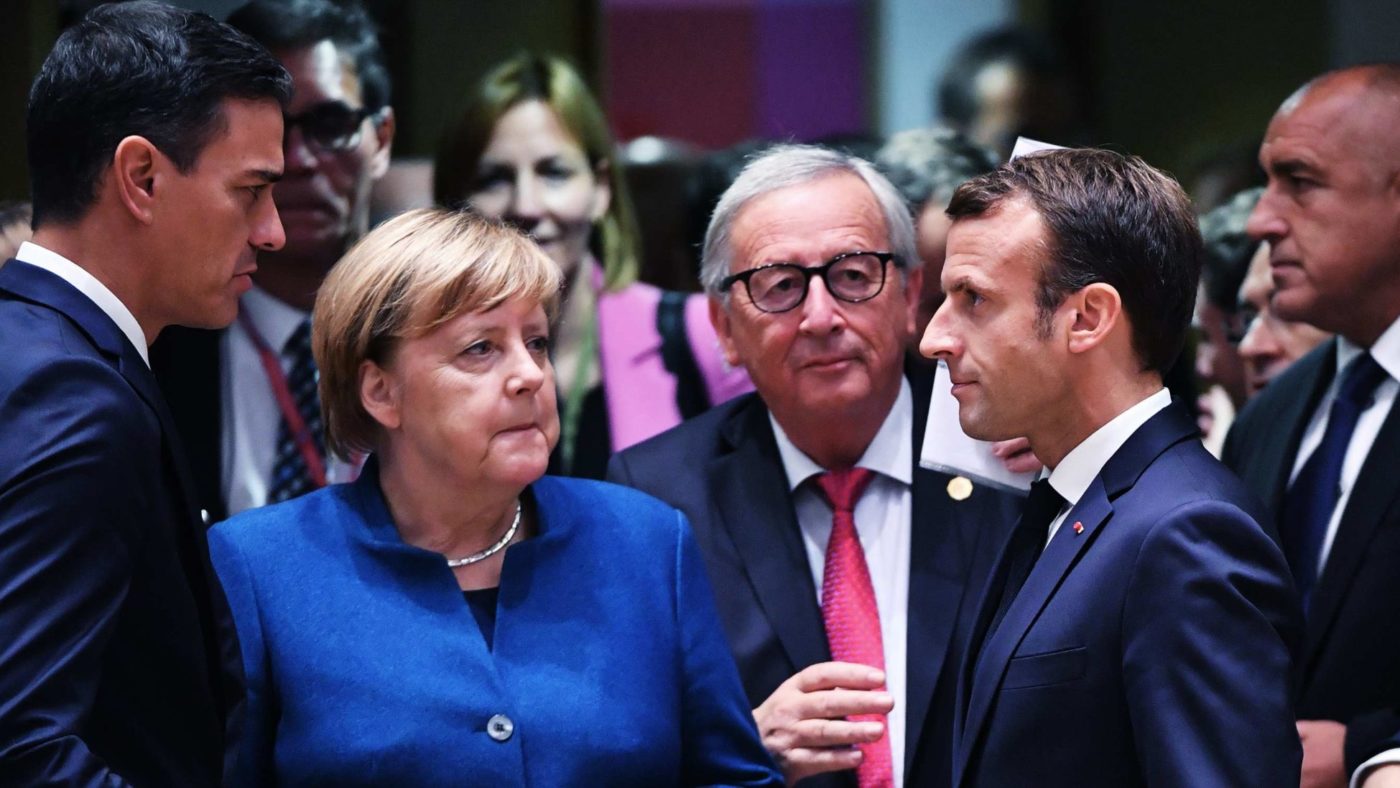With all the chaos surrounding Brexit, including impassioned calls to simply remain in the EU, it’s worth remembering just what staying in the Brussels club would mean for Britain.
Six years after it flared up so spectacularly in Greece, the euro crisis limps on in many countries around Europe. High unemployment numbers, especially among young people, and slow growth remain common, especially in the Mediterranean member states – all the while the European Central Bank has for a decade (or, as the cynics would say, since its inception) been following an extremely loose monetary policy. And while most other countries are doing well, though not brilliantly, the next crisis is always just around the corner.
Despite eurozone members talking about fixing their problems ever since 2012, not a whole lot has actually happened. Indeed, were a new crisis to come along, those same problems would likely return, albeit on a much more substantial scale.
It is no surprise then that some people have become increasingly nervous about this inactivity, fearing that a new crisis will lead to major disruptions if the eurozone does not change fundamentally. For a more stable system, it is said, more integration is needed. Many ideas have been discussed, from a euro Finance Minister and a eurozone budget to a strengthening of the European Stability Mechanism (ESM) and a transition to a European Monetary Fund.
France and Germany agreed to reforms over the summer summer. In what became known as the Meseberg Declaration, the two big eurozone players declared that they would work towards a common euro budget. However, the proposal was rather vague: crucial questions on whether it would be a standalone budget or part of the EU’s wider budget, or how big the budget would be, were not addressed.
As always when it comes to the euro, there seems little will to actually implement those reforms. This is especially the case in Germany, where a weak government does not want to risk angering its taxpayers even more. After all, it would be stability-oriented countries that would have to take the burden of more integration. This was already the case in the last euro crisis, when the so-called PIIGS states had to be bailed out.
But the consequences of the eurozone reforms being floated would be even more acute. Strengthening the Stability Mechanism, for example, means richer member states paying even more into a fund which would be primarily used by countries in need of help. Converting the Mechanism into a European Monetary Fund would merely increase the power of Brussels while still not making clear how member states’ money would be protected. Or take the Franco-German idea for a European Unemployment Stabilisation Fund: financing the fund would cost 0.35 per cent of each member state’s GDP – that means an extra €11.4bn from Germany alone.
Unsurprisingly, plenty of people in Germany and the so-called “Hanseatic League 2.0″ of rich northern European states are not too keen on these proposals. After all, they will be on the hook if Greece, Spain, or even France get into trouble. Most worrying of all is Italy, which is currently working on a particularly profligate budget. Its national debt is an eyewatering 131.2 per cent of GDP — way beyond the 60 per cent supposedly stipulated by the EU’s own fiscal rules.
It’s a situation so serious it could eventually bring down the euro altogether. European taxpayers will rightly be concerned that the Italian government seems to assume other member states will step in if the economy goes down the swanny.
Despite all these headwinds, Emmanuel Macron seems ever more determined to move ahead with deep eurozone reforms. Once again this week, French finance minister Bruno Le Maire urged his colleagues to be ready for “ever more integration”. In the same breath, Le Maire let the federalist mask slip by declaring that the European Union would need to become a “form of empire” – needless to say, “a peaceful empire” (as if that has ever existed). As well as this rather chilling exhortation, Le Maire delivered a sharp warning to the rest of the EU: “Either we get a eurozone budget or there will eventually be no euro at all”.
Le Maire’s words expose the bind that member states find themselves in: he is probably right that the status quo could lead to the downfall of the single currency. But by arguing for even more burden-sharing, for more redistribution, and for more power to Brussels, eurozone members risk an even bigger disaster.
Maybe, after all, it would be best if there was simply “no euro at all”, which is an option Le Maire does not seem to have thought through yet. As many people pointed out at the time, the euro was a bad idea motivated far more by the federalist ambitions of the European elite than any sound economic rationale.
A different future is possible. Instead of pushing for ever further financial integration, while ignoring its negative effects, the EU should re-open the door to monetary competition between member states. And instead of constantly looking for ways for Brussels to bail out crisis-hit economies, governments should be held accountable for their own recklessness. That is certainly something taxpayers in the rest of Europe would support wholeheartedly.


